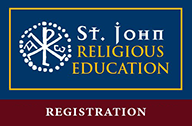Bulletins
November 13, 2016
Download the Bulletin as a PDFLet there be peace on earth and let it begin with me.
Let it begin with your priest, that is.
In the Extraordinary Form of the Roman Rite even when the Kiss of Peace does not take place at Holy Mass, the priest still says the words “Pax Domini sit semper vobiscum” or “May the peace of the Lord be with you always”. We would have to go back about a thousand years to find a time when those words initiated the sign of peace.
In the meantime the pax has come to be preceded immediately by words unlike the priest’s other prayers like the special prayer for peace and his personal prayers of preparation before Holy Communion. Over the last fifty years we have come to grow accustomed to hearing “Let us offer each other the sign of peace” or “Offerte vobis pacem”. It sounds like an instruction. Does it not?
Sometimes no such words preceded the pax. such as “in Carolingian times [when] the kiss of peace was still given without any accompanying greeting aside from the Pax Domini…” The offerte vobis pacem which we hear as an instruction really used to be more of a blessing. Fr. Jungmann continues:
But after the practice began of letting the kiss proceed from the altar, it became customary for the priest to combine it with a special blessing. The oldest version of such a blessing-which, however, became rarer later in the Middle Ages - still regarded the kiss of peace as a preparation for Communion: Habete vinculum pacis et caritatis, ut apti sitis sacrosanctis mysteriis.
which is to say, “May you all have the bond of peace and charity that you may be worthy of the most sacred mysteries.” Beautiful, no?
Those words parallel what is heard these days at the very beginning of the Ordinary Form of the Mass: “Fratres agnoscamus peccata nostra up apti simus ad sacra mysteria celebranda” or “Brethren let us acknowledge our sins that we may more worthily celebrate these sacred mysteries”.
Let it be.
Let it be.
Let it be.
May God bless you.
Fr. Christopher J. Pollard



